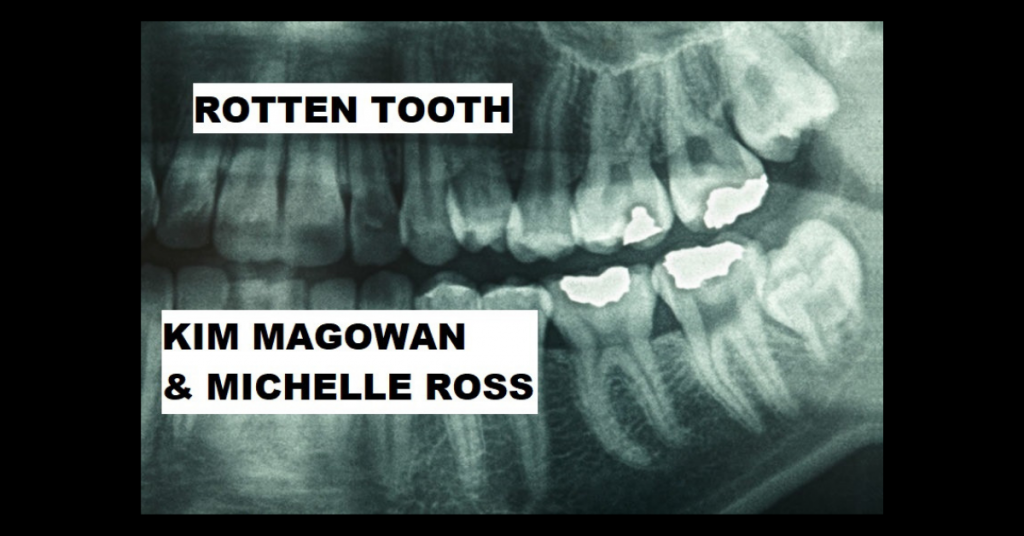Blinking in the darkness of the school auditorium, Rajiv spots his ex-wife Sangita. Her filmy green shawl is flung over the back of the empty seat beside her, reminding him of how their daughter, Alisha, puts a plate and cutlery out for her imaginary friend, Mr. Potato (not to be confused with the toy with the interchangeable facial features). The first time she did this, Rajiv thought Alisha was setting a place for her mother, and he’d wondered if the intention might actually conjure Sangita.
“You saving that seat for Todd?” Rajiv asks Sangita. Her boyfriend, pink-faced with thick, blond hair: Todd looks like a mayonnaise-based potato salad. Every time Alisha talks about Mr. Potato, Todd’s face is what Rajiv sees. If only she’d chosen some other produce as her friend’s namesake. Even Mr. Frisée or Mr. Dandelion Greens would leave a less bitter taste on Rajiv’s tongue.
Sangita sighs. “I thought you said talking to me was like having a cavity filled.”
“Root canal,” Rajiv says.
When Alisha first set that place for Mr. Potato, two years ago, Rajiv half believed Sangita would materialize, even though he knew perfectly well she was in Bermuda with Todd. Probably spreading aloe on Todd’s grotesque, sunburnt, mole-studded back. In movies, when children announced a presence the adults couldn’t see, those children were generally onto something. Rajiv sliced some frozen cookie dough and put it in the oven, just in case, so if Sangita miraculously walked in, the house wouldn’t smell only of takeout curry.
“You like to suffer,” Sangita says. “You like to feel sorry for yourself.”
“But after a root canal, the pain goes away,” says Rajiv.
Sangita looks at him with pity. “You need to find a seat. The concert will start any minute now.”
Rajiv finds a lone unoccupied chair two rows behind Sangita and watches as Todd settles in beside her, roping his thick arm around Sangita’s shoulders.
Then the curtain opens, and the band director thanks them for coming. He talks about the piece with which the concert will open, Bach’s “Sheep May Safely Graze.” A lullaby, he calls it. He explains the opening lines to them: “Sheep may safely graze and pasture/When a shepherd guards them well.” It was written, he tells them, for the birthday of Duke Christian, a patron of Bach, the nobleman praised for protecting his citizen flock.
Rajiv watches Todd massage Sangita’s neck with one of his giant, boiled ham hands, watches her whisper something to him. “My work is just as important as yours fucking is,” Sangita once whispered in Rajiv’s ear at a preschool play. This just after he’d kissed her cheek. Rajiv knew that things were often not what they appeared. He also knew that thinking like this was ridiculous when the thing you hoped you saw wrong was your ex-wife and her new—no, not new—partner.
The song the children play is so gentle that the music is like a hand rubbing soft circles onto Rajiv’s back, telling him to lie down and rest. “Let go of your troubles, weary travelers”: that had been Alisha’s one line in that school play.
Rajiv remembers the root canal he’d gotten ten years ago. How tender the endodontist was with him. The miracle of the Novocain sponging up his pain. And then after, when the pain was gone for good, how he had felt smitten with that endodontist for removing the thing so excruciating he’d consumed nothing but liquids for three weeks.
His analogy was all wrong. Sangita was no root canal. She was a rotten tooth. Not that she was to blame. When Rajiv first went to the dentist about his pain, he insisted the diagnosis had to be wrong. He routinely flossed. He hardly ate sweets. Then the dentist had explained that his tooth had a hairline fracture. Rajiv grinded his teeth in his sleep. That’s how the infection had gotten in: when he was unawares, convinced he’d done everything right.

